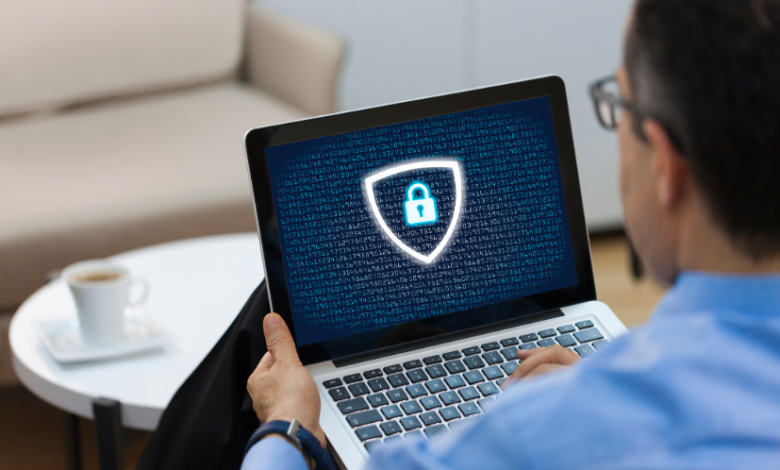
The Importance of Online Security
In today’s digital era, protecting personal and professional data is more critical than ever. Online threats, including hacking, phishing, and identity theft, have become increasingly sophisticated. Individuals and businesses must adopt strategies to ensure sensitive information remains private and secure while navigating the internet.
Public Wi-Fi networks, commonly found in cafes, airports, and hotels, are especially vulnerable. These networks are often unencrypted, allowing cybercriminals to intercept valuable data, including login credentials, banking details, and private communications. Being aware of these risks is the first step toward a safer online experience.
How VPNs Improve Privacy
Virtual Private Networks (VPNs) are one of the most effective tools for maintaining online privacy. VPNs encrypt data transmitted between a user’s device and the internet, preventing unauthorized access and monitoring.
Another advantage of VPNs is IP address masking. This feature enables anonymous browsing, allowing users to access restricted websites and streaming services safely. A reliable VPN ensures robust encryption, multiple server locations, and a user-friendly interface, combining security with convenience.
Advantages of a best free vpn
A best free vpn offers secure internet access without requiring a paid subscription. Despite being free, reputable VPNs provide encryption, IP masking, and the ability to access region-locked content.
One of the main benefits of a best free vpn is safe browsing on unsecured networks. Users can check emails, make transactions, or stream content without worrying about cyber threats. Modern free VPNs also offer good connection speeds, minimizing interruptions and ensuring a smooth browsing experience.
Choosing the Right VPN Service
Selecting the right VPN involves evaluating several critical factors. Key considerations include encryption strength, server locations, speed, device compatibility, and customer support. A well-designed VPN balances security and usability, allowing users to browse safely without compromising performance.
For businesses, VPNs are crucial for safeguarding best free vpn internal communications and sensitive data. Employees can securely access company networks from remote locations, reducing the risk of data breaches. For individuals, VPNs provide privacy, anonymity, and secure internet access.
See also: How Everyday Technology Improves Pet Safety
Common Misconceptions About Free VPNs
Free VPNs are often misunderstood. Many people believe free services compromise privacy, but trustworthy best free vpn providers maintain strong encryption and strict privacy policies.
Another misconception is that VPNs reduce internet speed significantly. High-quality free VPNs optimize servers to maintain fast and reliable connections. Choosing a VPN with multiple server locations ensures privacy without sacrificing browsing performance.
Combining VPNs with Other Security Practices
While VPNs enhance online security, they are only one part of a comprehensive approach. Strong passwords, two-factor authentication, and regular software updates are equally important. Users should avoid unsecured networks whenever possible and exercise caution when sharing sensitive information online.
Using a best free vpn alongside these measures provides a layered security system. Encrypted connections protect data in transit, while privacy features reduce the risk of tracking and monitoring. Staying informed about cybersecurity threats further strengthens overall protection.
Real-Life Applications of VPNs
VPNs have multiple practical applications. They enable secure browsing, protect data on public networks, and allow access to geo-restricted content. Businesses depend on VPNs to secure internal communications and protect sensitive corporate data.
A best free vpn meets these needs effectively. Its encryption and privacy features make it a reliable tool for individuals and organizations alike. By offering secure access to global content, VPNs provide both safety and convenience for internet users.
The Future of Online Privacy
As technology advances, cyber threats continue to evolve. Hackers and cybercriminals constantly develop new methods to exploit vulnerabilities, emphasizing the need for proactive online security measures.
VPNs like a best free vpn will remain essential tools for protecting privacy in the digital world. When combined with other security practices, they form a robust foundation for safe internet use, allowing users to browse, work, and communicate without compromising sensitive data.
Conclusion
Protecting online privacy and security is vital in today’s connected environment. VPNs, particularly a best free vpn, provide encryption, anonymity, and access to restricted content, making them indispensable for both personal and professional use.
By combining VPN usage with strong passwords, careful online behavior, and regular software updates, users can implement a comprehensive digital security strategy. Ensuring sensitive data remains protected guarantees a safe, reliable, and unrestricted online experience for everyone.




